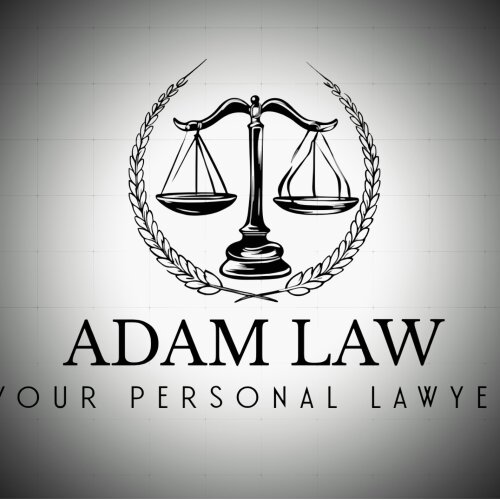
Best New Business Formation Lawyers in Sweden
Share your needs with us, get contacted by law firms.
Free. Takes 2 min.
Or refine your search by selecting a city:
List of the best lawyers in Sweden

About New Business Formation Law in Sweden
Sweden is recognized for its vibrant and entrepreneurial business environment. The process of forming a new business is streamlined and relatively straightforward. The Swedish government facilitates this through clear regulations and support systems for startups. Generally, it involves choosing the right business structure, registering with the Swedish Companies Registration Office (Bolagsverket), and adhering to specific financial and operational regulations. Popular business structures include sole proprietorships, trading partnerships, limited companies, and economic associations. Each structure has distinct legal implications and requirements.
Why You May Need a Lawyer
Starting a new business can be intricate and time-consuming. Here are common reasons why legal assistance might be necessary:
- Choosing the Business Structure: Legal counsel can help you choose the most suitable business structure given your specific needs and circumstances.
- Contract Drafting and Review: Lawyers can draft and review partnership agreements, leases, and supplier contracts to ensure your interests are protected.
- Compliance Issues: Legal experts can help navigate Sweden's comprehensive regulatory environment to ensure compliance with all necessary laws and regulations.
- Intellectual Property: If your business involves creative or innovative products, a lawyer can assist in protecting intellectual property rights.
- Resolving Disputes: Legal support is crucial when resolving disputes that might arise with vendors, clients, or partners.
Local Laws Overview
Key legal considerations in Sweden's new business formation include:
- Business Name Registration: Every business must register its name with Bolagsverket and comply with naming regulations.
- Tax Obligations: Businesses must register for VAT and follow tax regulations as dictated by the Swedish Tax Agency (Skatteverket).
- Employment Laws: Adherence to labor laws is crucial if you plan to hire employees, including regulations around contracts, working hours, and employee rights.
- Licensing and Permits: Depending on the nature of the business, permits or licenses might be necessary.
Frequently Asked Questions
What types of business structures are available in Sweden?
In Sweden, you can choose from several structures, including sole proprietorship, trading partnership, limited company, and economic association, each with unique regulatory requirements and liability implications.
How much does it cost to register a company in Sweden?
The cost varies depending on the business structure. Typically, registering a limited company costs between SEK 1,900 and SEK 2,200 if done online.
What are the ongoing requirements after starting a business?
Businesses need to abide by tax reporting, annual meeting requirements, and maintain statutory accounting records.
Can I start a business in Sweden as a foreign national?
Yes, foreign nationals can establish businesses in Sweden, but might need a residence permit depending on their country of origin.
Is there support for startups in Sweden?
Yes, the Swedish government and private organizations provide various forms of support, including grants, counseling, and incubator programs.
How long does it take to register a business in Sweden?
Registration times vary, but generally it takes about two weeks once all necessary documentation is submitted.
What is Bolagsverket?
Bolagsverket, or the Swedish Companies Registration Office, is the government agency responsible for business registration and company records.
Do I need a Swedish bank account to register my business?
While not legally required for registration, having a Swedish bank account is advisable for operational ease and financial transactions.
What should I know about VAT in Sweden?
Most Swedish businesses need to register for VAT, and the standard rate is 25%, though certain goods and services have reduced rates.
What legal protections are available for intellectual property?
Sweden offers robust protections for intellectual property, including trademarks, patents, and copyrights, which can be registered to protect your business assets.
Additional Resources
There are abundant resources available to individuals seeking information on business formation in Sweden:
- Bolagsverket: Offers official guidance on business registration and structure specifics.
- Swedish Tax Agency (Skatteverket): Provides tax guidelines and registration services.
- Arbetsförmedlingen (Public Employment Office): Offers resources for employing staff and understanding labor laws.
- Verksamt.se: A portal offering comprehensive information for businesses including registration, tax, and support services.
Next Steps
If you're considering forming a new business in Sweden, consulting a lawyer with expertise in Swedish business law can be invaluable. They can provide personalized advice and ensure compliance with local regulations. Start by researching and contacting law firms specializing in commercial law. Most firms offer an initial consultation to discuss your requirements and offer guidance on subsequent steps. Gathering necessary documents and having a clear business plan can enhance the efficiency of your legal consultations.
Lawzana helps you find the best lawyers and law firms in Sweden through a curated and pre-screened list of qualified legal professionals. Our platform offers rankings and detailed profiles of attorneys and law firms, allowing you to compare based on practice areas, including New Business Formation, experience, and client feedback.
Each profile includes a description of the firm's areas of practice, client reviews, team members and partners, year of establishment, spoken languages, office locations, contact information, social media presence, and any published articles or resources. Most firms on our platform speak English and are experienced in both local and international legal matters.
Get a quote from top-rated law firms in Sweden — quickly, securely, and without unnecessary hassle.
Disclaimer:
The information provided on this page is for general informational purposes only and does not constitute legal advice. While we strive to ensure the accuracy and relevance of the content, legal information may change over time, and interpretations of the law can vary. You should always consult with a qualified legal professional for advice specific to your situation.
We disclaim all liability for actions taken or not taken based on the content of this page. If you believe any information is incorrect or outdated, please contact us, and we will review and update it where appropriate.
Browse new business formation law firms by city in Sweden
Refine your search by selecting a city.















